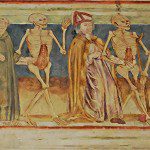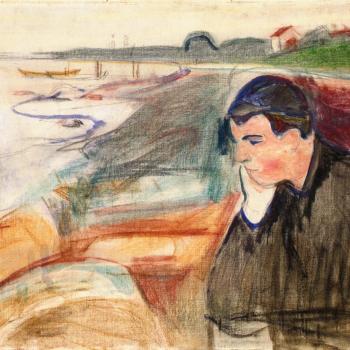But this presents us with the biggest problem of all: cohesion, or, perhaps, call it pragmatism. We may be emerging into an illiberal era, but our population remains liberal insofar as it is pluralistic. Conservative Catholics—both liberal and not—have gotten around this issue by dedicating themselves to various forms of fusionism: the torture arguments of the Bush years, the contemporary obeisance to the serial adulterer (and let’s be honest, effectively pagan in the bad sense) Trump, etc. In this sense (and for either good or bad reasons depending on whom you ask) these groups have managed to be successful: “you are okay with beefing up the military and bombing kids to oblivion but oppose abortion? Sign. Me. Up” (I don’t put it so baldly to mock such people; I do it to make stark the fact that lots of Catholics have found themselves defending, at minimum, questionable behavior in the name of higher causes).
The Catholic Left has faltered on this. For those Catholics who take the Church’s social stands as seriously as their conservative co-religionists, compromise has come harder. Pro-Life Democrats have not emerged as a major force in most circumstances. For more radical Catholics (e.g. Dorothy Day) the pro-capitalist Democratic Party was never going to cut it in the first place. In other words, even as certain somewhat- to fully-illiberal Left movements grow (the DSA, the PSL, Corbyn’s Labour Party, etc.), the Catholic Left remains frozen. Is there ground for working with pro-choice parties, as long as the material cooperation is incredibly indirect and a multitude of other evils are fought against in the process? Is a quasi-utilitarian moral calculus, long used by conservatives, helpful? Can Catholics form their own caucuses within larger organizations to fight for their own stances? Is this merely a tit-for-tat situation—i.e. the Right has been so pragmatic for so long the Left ought to be as well?
These are honest questions, not ones I have particular answers to. Catholics, especially given their political divisions, are simply not a big enough bloc to control elections like the Centre Party used to in Weimar Germany. Traditionally, on the Right alliances have been made to deal with this problem. On the Left, Catholics have faltered more—half-alienated by the Democrats and half-paralyzed by grave moral issues like abortion. As illiberalism emerges once again, one side has already declared its—if only temporary—allegiance. The other side still seems dazed.
Would the future of a Catholic Left mean being a “bridge builder” like Pope Francis (though by necessity not in the same way)—allying with environmentalists here, indigenous activists there, pro-life people here, and universal healthcare warriors there? Again, I have no answer. But this questions seems to me to be the big one, the real lacuna left behind when both Fr. Spadaro’s and Douthat’s cases have been weighed. Illiberalism is emerging, but what politically-vital Catholic forms can it take?













